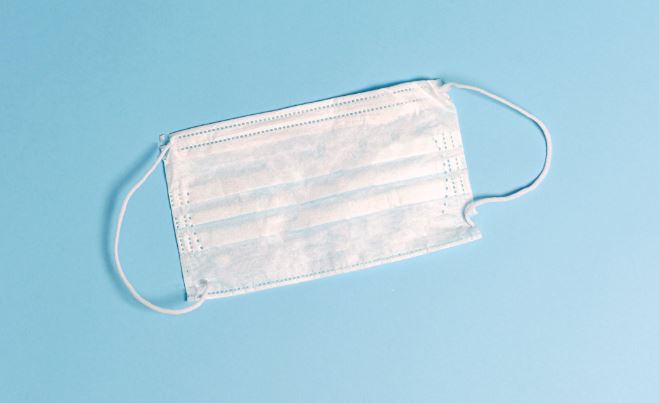Contact: Kathleen Achtenberg, achtenbergk@michigan.org
Michigan’s small businesses and nonprofits working to recover from the ongoing impact of the COVID-19 virus can now apply for grants of up to $20,000 through the Michigan Small Business Restart Program, the Michigan Economic Development Corporation announced today. The program will provide $100 million in economic assistance to Michigan’s small businesses and nonprofits and in turn, help support workers and their families facing economic uncertainty during the outbreak. Information on how to apply, as well as eligibility criteria and program guidelines are available at michiganbusiness.org/restart.
“The Michigan Small Business Restart Program puts federal funding to work for small businesses in Michigan hardest hit by the impact of COVID-19, helping to ensure they can keep their doors open and put critical protections in place for their workers and their customers,” said Gov. Gretchen Whitmer. “Families across the state depend on small businesses for their livelihood, and this program will build on additional COVID-19 business relief efforts offered by the MEDC to create a strong foundation for Michigan’s long-term economic recovery.”
Approved by the Michigan Strategic Fund on July 7, the Michigan Small Business Restart Program allocates $100 million of federal CARES Act funding to provide support to Michigan’s small businesses and nonprofits that are reopening and have experienced a loss of income as a result of the COVID-19 crisis. The funding will be distributed across 15 local or nonprofit economic development organizations (EDOs) covering all 83 counties in the state for grants up to $20,000 to support certain small businesses and nonprofits that have realized a significant financial hardship as a result of the COVID-19 virus. Participating EDOs are as follows:
|
APPLICANT |
AMOUNT |
COUNTIES COVERED |
| Invest UP |
$4,545,455 |
Keweenaw, Houghton, Ontonagon, Gogebic, Baraga, Iron, Marquette, Dickinson, Menominee, Alger, Delta, Schoolcraft, Luce, Mackinac, Chippewa |
| Networks Northwest |
$4,545,455 |
Emmet, Grand Traverse, Charlevoix, Antrim, Kalkaska, Missaukee, Wexford, Manistee, Benzie, Leelanau |
| Otsego County Economic Alliance |
$3,500,000 |
Otsego, Crawford, Roscommon, Montmorency, Ogemaw, Oscoda |
| Target Alpena |
$3,500,000 |
Iosco, Alcona, Alpena, Presque Isle, Cheboygan |
| The Right Place |
$9,545,455 |
Barry, Ionia, Kent, Lake, Mason, Mecosta, Montcalm, Muskegon, Newaygo, Oceana, Osceola |
| Lakeshore Advantage |
$3,500,000 |
Allegan, Ottawa |
| Middle Michigan Development Corporation |
$3,500,000 |
Isabella, Gratiot, Clare, Gladwin, Arenac, Midland |
| Saginaw Future |
$3,545,455 |
Bay, Saginaw |
| Flint & Genesee Chamber |
$8,045,455 |
Shiawassee, Genesee, Lapeer, St. Clair, Tuscola, Sanilac, Huron |
| Lansing Economic Area Partnership |
$5,545,455 |
Clinton, Eaton, Ingham |
| Southwest Michigan First |
$7,545,455 |
Kalamazoo, St. Joseph, Berrien, Calhoun, Van Buren, Cass, Branch |
| Ann Arbor Spark |
$8,545,455 |
Livingston, Washtenaw, Hillsdale, Jackson, Lenawee, Monroe |
| Oakland County |
$11,045,455
|
Oakland |
| Macomb County |
$7,545,455 |
Macomb |
| Detroit Economic Growth Corporation |
$15,545,450 |
Wayne |
The Michigan Small Business Restart Program application period will be live through Wednesday, August 5 at michiganbusiness.org/restart and all applications received during that three week period will receive consideration; grants will be awarded after the close of the application period based on criteria that are defined by the EDOs. Funds can be used as working capital to support payroll expenses, rent, mortgage payments, utility expenses or other similar expenses.
The MEDC anticipates that more than 5,000 businesses across the state will benefit from this program.
To qualify for grant support, businesses must meet the following criteria, based on statutory requirements for the program:
- Is a business or nonprofit with fewer than 50 employees that can demonstrate it is affected by the COVID-19 emergency
- Needs working capital to support eligible expenses
- Demonstrates an income loss as a result of the COVID-19 emergency
Additionally, at least 30 percent of the funds awarded under the program must be provided to women-owned, minority-owned or veteran-owned eligible businesses.
“We have taken this program from words on a page to full deployment in two weeks to ensure we can start getting these funds into the hands of small businesses and nonprofits across Michigan and continue to set a path to economic recovery here in our state,” said MEDC CEO Mark A. Burton. “The Michigan Small Business Restart program will provide a significant opportunity to address immediate needs of small businesses and nonprofits negatively impacted by COVID-19. Combined with other MSF programs and services, as well as local and federal economic development support, we can help ensure small businesses throughout the state to recover from the short and long-term impacts of the COVID-19 outbreak.”
Per statutory requirements, a monthly report will be provided to the legislature that includes a listing of grants awarded in the previous month and the name of the recipient of each grant provided under the program. All reporting forms will also be available on michiganbusiness.org/restart.
Paola Mendivil, co-owner of El Granjero Mexican Grill in Grand Rapids and advocate for Latina women, said she was pleased to learn that at least 30 percent of the Michigan Small Business Restart funds will be awarded to women-owned, minority-owned or veteran-owned eligible businesses.
“Small businesses all around Michigan have been hit hard by the COVID-19 virus, but women- and minority-owned businesses are often even more vulnerable in difficult times,” said Mendivil, who is also an active member of Local First, the West Michigan Sustainable Business Forum, and the Latina Network of West Michigan. “This funding could prove to be a lifeline for so many of these small businesses in the state. It’s important we continue to raise awareness and encourage these businesses to apply for these Restart Grants.”
The Michigan Small Business Restart Program is modeled after the Michigan Small Business Relief Program, approved on March 19 by the Michigan Strategic Fund to support small businesses impacted by the COVID-19 crisis.
The Michigan Small Business Relief Program consisted of a total of $20 million aimed at supporting businesses in need of immediate relief. The program included $10 million that was distributed to 15 local EDOs to provide grants up to $10,000 to certain small businesses impacted by COVID-19. Additionally, the program authorized $10 million for small business loans of not less than $50,000 and not more than $100,000 to eligible borrowers impacted by COVID-19 that were not able to seek alternative, suitable financing.
Under the Michigan Small Business Relief grant program, local EDOs selected more than 2,700 businesses across the state covering all 83 counties that received grant support expected to retain approximately 11,000 jobs. To date, more than 130 small business loans totaling more than $8 million have been approved through MSF delegated approval.
The $15 million Michigan Agricultural Safety Grant Program application process is also now live and can be found at michiganbusiness.org/agsafety. The program will support the implementation of COVID-19 monitoring and mitigation strategies to protect agricultural employees and the state’s overall food production industry, including PPE, testing, employee training and housing needs to ensure appropriate social distancing.
With the approval of these two programs by the MSF Board, the MEDC has launched 17 COVID-19 relief and recovery programs supporting more than 3,400 businesses in the state and helping to retain more than 14,700 jobs across all 83 counties. To learn more about MEDC’s COVID-19 response programs and the impact they are having on economic recovery efforts, visit michiganbusiness.org/covid19response. Other resources for economic reopening efforts as well as businesses across Michigan struggling with economic losses as a result of the COVID-19 virus can be found online at michiganbusiness.org/covid19.
The MEDC has also developed a FAQ for Michigan businesses and communities at michiganbusiness.org/covid19-faq.
Information around this outbreak is changing rapidly. The latest information is available at Michigan.gov/Coronavirus and CDC.gov/Coronavirus.
About Michigan Economic Development Corporation (MEDC)
The Michigan Economic Development Corporation is the state’s marketing arm and lead advocate for business development, job awareness and community development with the focus on growing Michigan’s economy. For more information on the MEDC and our initiatives, visit www.MichiganBusiness.org. For Pure Michigan® tourism information, your trip begins at www.michigan.org. Join the conversation on: Facebook, Instagram, LinkedIn, and Twitter.
Local quotes:
The Right Place:
“Many West Michigan small businesses continue to be negatively impacted by the coronavirus pandemic,” said Birgit Klohs, President & CEO, The Right Place, Inc. “This grant funding from the Michigan Small Business Restart Program will provide additional support to these businesses and assist with the region’s economic recovery.”
Southwest Michigan First:
“I am humbled by the commitment of the Michigan Economic Development Corporation to small businesses, this $100 million along with the $20 million previously allocated will change the future of the families who operate our main street, community centric businesses across Michigan,” said Southwest Michigan First Senior Partner and CEO Ron Kitchens. “Thank you to Speaker Chatfield, Majority Leader Shirkey and Governor Whitmer for your bipartisan leadership and for understating that the greatest force for change is a job.”
Lakeshore Advantage:
“As an economic development organization, we have been on the front lines of small business and primary employer support since March. Lakeshore Advantage is honored to be stewards of these Restart grant funds locally in Allegan and Ottawa counties,” said Jennifer Owens, president, Lakeshore Advantage. “We are grateful to the MEDC and Michigan Strategic Fund for recognizing this valuable opportunity to directly assist as partners in small business retention and growth.”
Northeast Michigan Council of Governments:
“Northeast Michigan’s economic development organizations are extremely grateful for the Cares Act SBR funding that will provide $7 million in competitive grant funds to eligible small businesses and nonprofits in the 11-county region they serve. Target Alpena and Otsego County Economic Alliance will be providing the administration on the grant program, and Northern Lakes Economic Alliance will be assisting target in the Cheboygan county region,” said Northeast Michigan Council of Governments Executive Director Diane Rekowski. “We anticipate receiving many grant applications from businesses to address the financial loss they incurred during the Covid-19 pandemic. Each EDO has set up separate teams that are comprised of representatives from each of the 11 counties to provide review and grant approvals from applications in their respective counties. As small businesses continue to feel the financial impact of COVID-19 in Northeast Michigan, the availability of up to $20,000 in grant funds will come as a welcome relief to those awarded.”
Cornerstone Alliance:
“These funds will provide much needed liquidity to Berrien County businesses who have suffered during the shutdown,” said Cornerstone Alliance President Rob Cleveland. “Businesses of every size and industry have been negatively impacted and I encourage every eligible business in Berrien County to apply for funding.”
Middle Michigan Development Corporation:
“This is absolutely great news,” said Middle Michigan Development Corporation President and CEO James McBryde. “The Michigan Legislature and MEDC have really come through with another relief program that will really help the small businesses in our region.”







